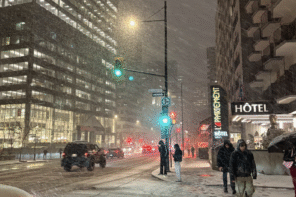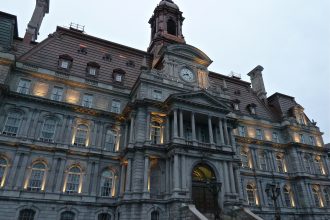Everyone who lives in Montreal knows that the winters here are absolutely horrendous. The city-wide temperature is somehow always set to below negative 10 degrees Celsius; the amount of snowfall that we get on an annual basis could almost be categorized as disgusting. My favourite little feature is that it snows all the way until the end of April, sometimes even into the month of May. Despite the terrible winter conditions that hit the city every year, Tourisme Montréal released a statistic showing that the city had over 11 million visits in 2018. While Montreal is well-known as a “winter” city, none of the big events that attract tourists take place during the winter. If anything, Montreal is a city that comes alive during the summer.
Cities like Montreal and Toronto are classified as “big cities”, not only because they have the largest populations in their proximity, but also because they are the primary centers for tourism in Canada. In the case of Montreal, tourism was responsible for a $4.9 billion contribution to the economy in 2018, with festivals and large events playing an important role. Examples of these include the International Jazz Festival, the Grand Prix, the Just for Laughs comedy festival, and in recent years, big music events like Osheaga and Ilesoniq.
Normally we would be in the midst of an exciting summer season, filled with an impressive lineup of events that keep the entire city busy. However, just as many of us have had to cancel our summer plans due to COVID-19, the city of Montreal has also been forced to either postpone or cancel many of the events that would have taken centre stage. Osheaga and Ilesoniq have been cancelled entirely, the Grand Prix is still questionable at best, and other iconic festivals like the Jazz Festival and Just for Laughs have decided to move to online platforms in dramatically different formats.
Of course, these are the only reasonable decisions that can be made in unprecedented times like these. COVID-19 has crippled the entire world, and the necessary precautions must be taken to move forward in this new paradigm. However, it is also important to understand that there are consequences to prioritising public health and safety. If tourism is shut down in the foreseeable future, there will be significant setbacks in the economy, especially for the city of Montreal.
It is easy to see that the groups most heavily affected will be the festival organizers themselves. In 2019, Osheaga drew 140,000 fans to the event over a period of three days, and based on its growth in recent years, most likely would have drawn more in this year’s edition as well. This is why the now empty year of 2020 will both hit their revenue on ticket sales, as well as slow down the upward momentum that the annual event had been gathering. Osheaga is just one of the many other events that have been cancelled this year, and all of them face similarly depressing situations. However, the parties that are the most worried may just be the local vendors and businesses that relied on these events to bolster their summer livelihood.
For many of the businesses situated in downtown Montreal like restaurants and hotels, it is difficult to get locals to come to a busy city centre without any functional incentive. Their main sources of revenue then must come from tourists, and without them, many of these establishments are struggling to even stay in business. Hotels in busy parts of downtown are having the most trouble, as a city-wide shutdown of non-essential services and virtually no tourist activity has left many hotel owners wondering if they will be able to pay their expenses for the coming week. While the government has set aside $200 million for hotel renovations, the real problem is the lack of immediate cash flow that all hotels need in order to maintain their buildings at a serviceable level.
Taking a look at the bigger picture, the effect of the cancelling large scale summer events on the aforementioned parties has a larger, cascading effect on the local economy. According to a 2018 study by KPMG, summer festivals in Montreal led to economic spinoffs of around $291 million, which account for the benefits that businesses in the area derived from these events. Although it is impossible to pinpoint the exact economic impact, it is certain that large festivals are a driving force behind Montreal’s success during the summer season, and that leaves us with two major questions going forward. Will the local economy be able to withstand an empty summer? And, how will festivals in Montreal be hosted in the aftermath of COVID-19?








